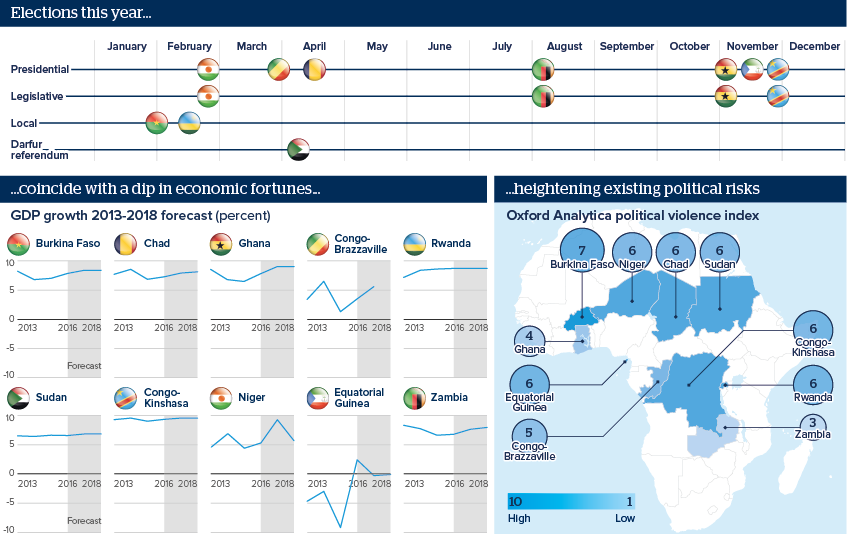High-risk Africa elections portend volatility in 2016
Several polls scheduled for 2016 could become flashpoints given the confluence of political and economic risks

Source: NDI, World Bank, Oxford Analytica
Outlook
Elections scheduled for 2016 could become flashpoints for violence. Such risks are acute where there are grievances over leaders seeking third terms (for example, Congo-Brazzaville), entrenched political dynasties (Equatorial Guinea), manipulation of the electoral administration (Niger) or where Islamist militant groups could mount high-profile attacks on voters (Chad).
In all cases, the economic downturn -- linked to weak prices for commodities such as oil and copper -- is depressing living standards, creating fertile ground for unrest. By reducing fiscal receipts, it is also raising the political stakes to retain or gain access to remaining state resources. In areas of recent civil conflict, notably Sudan's Darfur region and eastern Congo-Kinshasa, voting pressures could enflame conflict.
Impacts
- Zambia will likely avoid agreeing to an IMF bailout until after the polls in order to avoid politically costly spending cuts.
- Spill over from the Burundi crisis could exacerbate tensions in Eastern Congo-Kinshasa, raising the risk of a wider regional conflict.
- Whoever wins the Central African Republic's presidential run-off will struggle to rein in armed militias.
- Competition to win municipal council seats could spur intra-ANC violence in South Africa, particularly in poorer provinces.